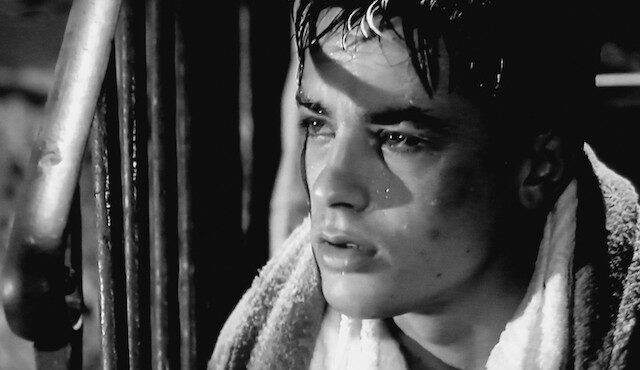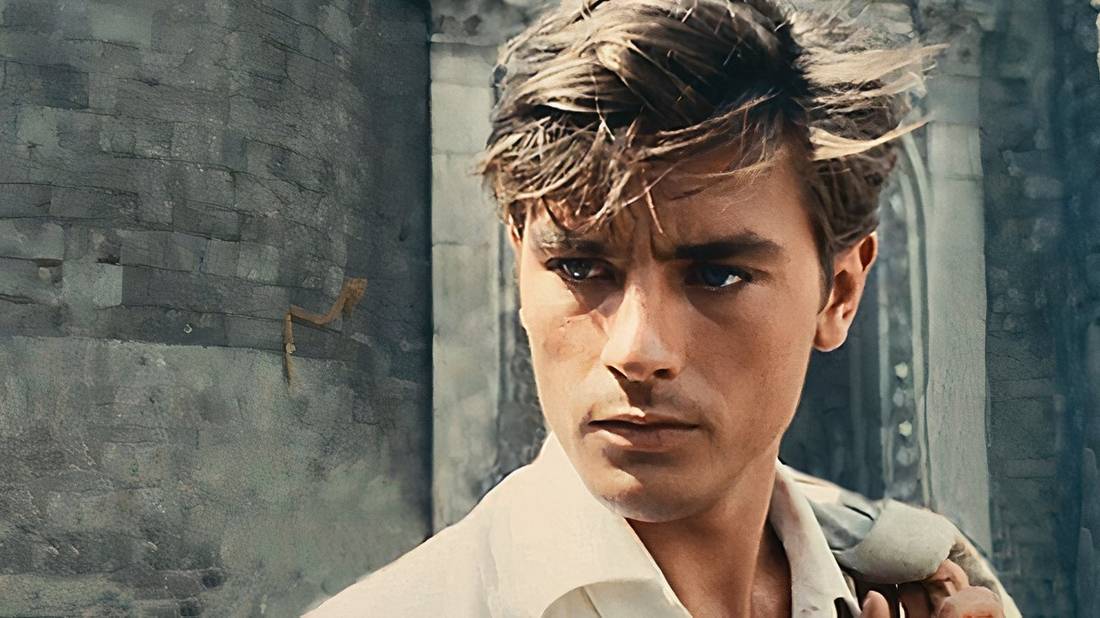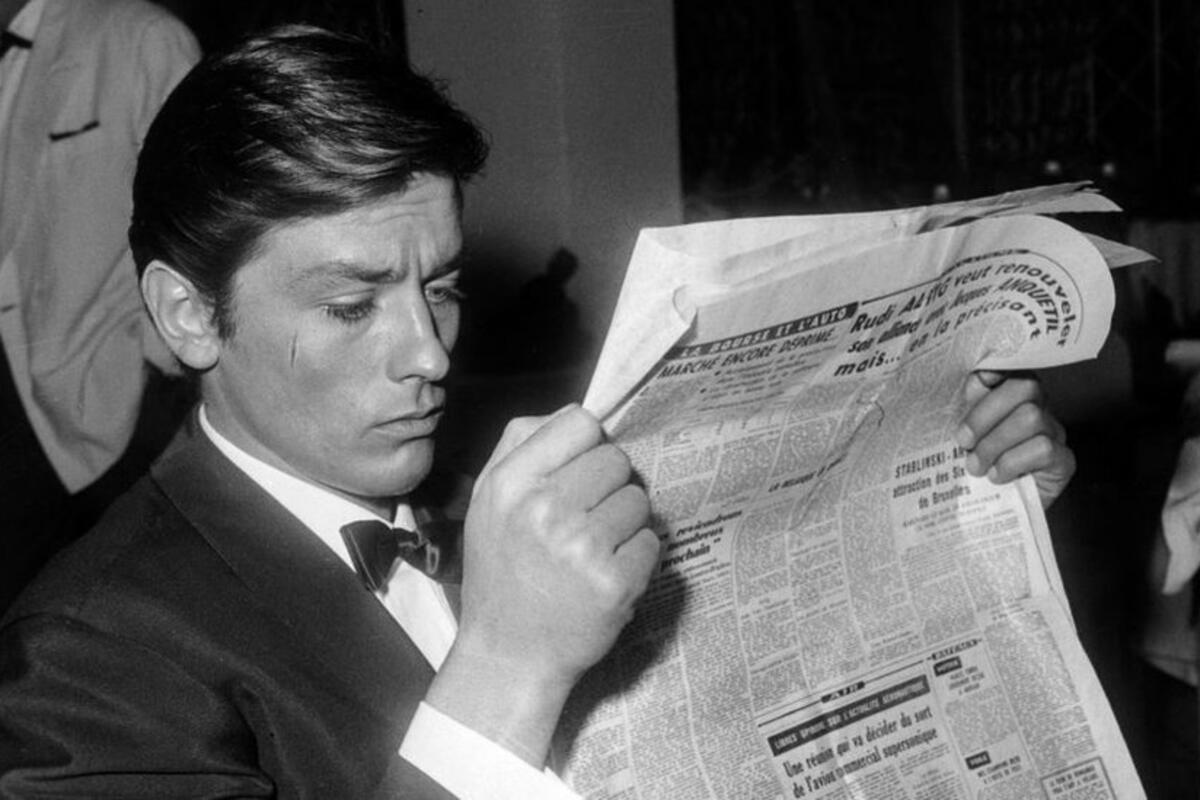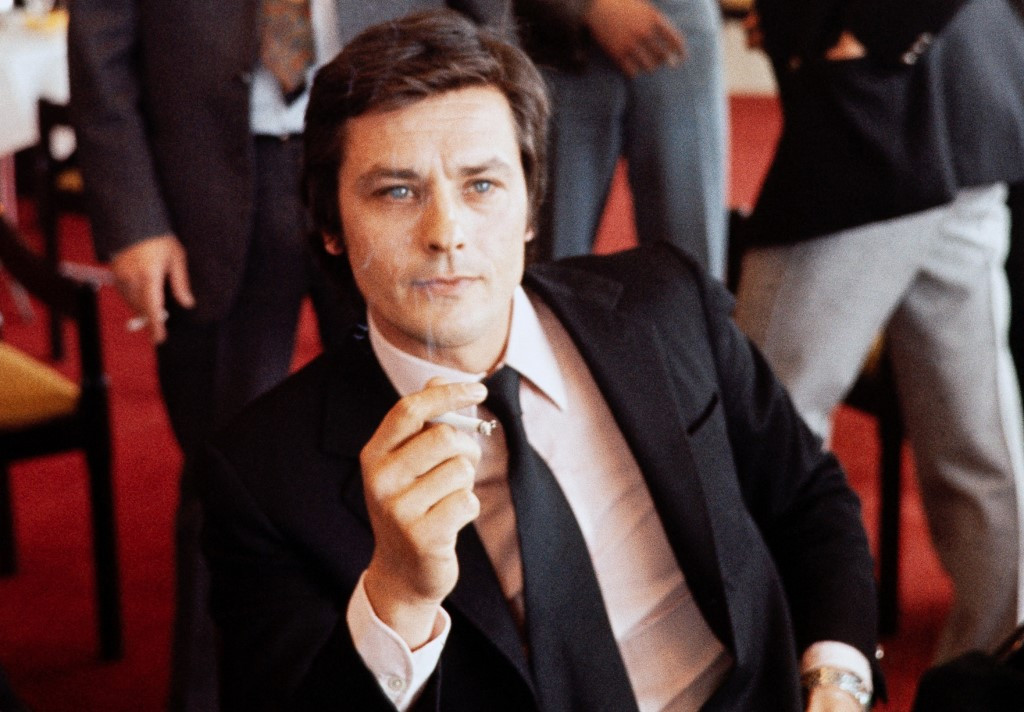

On November 8, 1935, a boy named Alain Delon was born in the Paris suburb of Sceaux, roughly 80 kilometers from the famed Notre Dame Cathedral. Few could have predicted that this child, who struggled with discipline and belonging, would one day become one of the most recognizable actors of his generation. Known for his striking good looks and commanding presence on screen, Delon’s journey from a fractured childhood to global stardom remains one of cinema’s most compelling stories.

Early Life and Family Struggles
Alain Delon’s early years were far from stable. His mother worked as a pharmacist, while his father ran a small cinema. When the couple separated while Alain was only three years old, his world was split between two households. Both parents eventually remarried, creating a blended family environment that left the young Delon feeling like an outsider.
His stepfather worked as a butcher, and his mother later joined him in the trade. With little time to raise their son, they hired a nanny to care for him. Delon later admitted that while he initially enjoyed the freedom of moving between households, he eventually began to feel neglected, as though no one truly cared for him.
This sense of displacement would leave a lasting impact on Delon’s character, shaping the intensity and vulnerability he later brought to his screen roles.

A Troubled Student
Delon’s school years were marked by turbulence. Intelligent yet restless, he often found himself in trouble for mischief and disobedience. His behavior led to multiple expulsions, forcing him to change schools repeatedly. Teachers and administrators struggled to contain his rebellious spirit, which seemed more suited to adventure than academic discipline.
At one point, he was sent to train as a butcher, following the path of his stepfather. After just three months working in the shop, however, he realized the trade was not for him. Brief stints in a store and other small jobs followed, but none seemed to fit the ambitions of the restless young man.

Military Service and a Turning Point
Delon’s life began to take shape when he joined the French Navy. Military service provided the discipline and structure that had long been missing. Though it was a difficult adjustment, Delon later credited his time in the Army with instilling values of endurance and responsibility.
After returning from service, he worked as a waiter to make ends meet. Yet beneath the surface, his life was about to change dramatically. His natural charm and striking looks began to draw attention, setting him on a path that would soon lead him away from ordinary jobs and into the world of cinema.
Breaking Into Film
Delon’s rise to fame was not immediate, but it was meteoric once it began. In the late 1950s, he was discovered by filmmakers and casting directors who recognized his potential. His breakthrough came with roles in films that highlighted his intense screen presence, most notably “Purple Noon” (1960), where he played the enigmatic Tom Ripley. The film introduced international audiences to his talent and marked him as a rising star of European cinema.
Over the following decades, Delon built an extraordinary career in France and abroad. His performances in films such as “Rocco and His Brothers” (1960), “Le Samouraï” (1967), and “The Sicilian Clan” (1969) solidified his reputation as both a gifted actor and one of the most handsome leading men of his time.

A Global Icon
By the 1960s and 1970s, Alain Delon was not only a star in France but also a global figure. His style, charisma, and aura of mystery made him a cultural icon. Fashion designers, photographers, and filmmakers alike sought him out, and he became a symbol of European elegance.
Unlike many actors whose careers faded, Delon maintained his influence well beyond his prime acting years. His name became synonymous with sophistication, and his films continue to be celebrated as classics of international cinema.
Personal Challenges
Behind the glamour of fame, Delon’s life was not without controversy. His personal relationships, brushes with scandal, and occasional retreat from public life often made headlines. Yet, despite the turbulence, he maintained a strong connection to his craft and his audience.
In interviews, Delon has been candid about the struggles of his youth, acknowledging how his difficult childhood shaped him. This honesty, combined with his enduring screen legacy, has deepened public fascination with his life story.

Legacy of Alain Delon
Today, Alain Delon is regarded as one of the most important figures in French cinema. His influence can be seen in the work of directors and actors across generations. From his early struggles with family instability and school expulsions to his transformation into an international star, his life embodies resilience and reinvention.
More than just an actor, Delon became a cultural touchstone, representing both the allure and complexity of European cinema. His career serves as a reminder that behind every icon is a human story — one shaped by hardship, perseverance, and the search for identity.
Conclusion
Alain Delon’s life story is more than the tale of a handsome actor who rose to fame. It is a journey of a boy who endured fractured family life, rebellious school years, and uncertain beginnings before finding purpose on the stage and screen. His path reminds us that greatness often emerges from struggle, and that the power of cinema lies not only in storytelling but in the real lives that inspire it.
